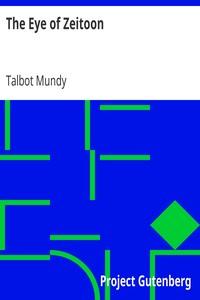|
|
Read this ebook for free! No credit card needed, absolutely nothing to pay.Words: 102538 in 25 pages
This is an ebook sharing website. You can read the uploaded ebooks for free here. No credit cards needed, nothing to pay. If you want to own a digital copy of the ebook, or want to read offline with your favorite ebook-reader, then you can choose to buy and download the ebook.

: The Satyricon — Complete by Petronius Arbiter Firebaugh W C Translator - Rome Fiction; Satire Latin Translations into English Erotic Fiction; Banned Books from Anne Haight's list@FreeBooksTue 06 Jun, 2023 INTRODUCTION. Of the many masterpieces which classical antiquity has bequeathed to modern times, few have attained, at intervals, to such popularity; few have so gripped the interest of scholars and men of letters, as has this scintillating miscellany known as the Satyricon, ascribed by tradition to that Petronius who, at the court of Nero, acted as arbiter of elegance and dictator of fashion. The flashing, wit, the masterly touches which bring out the characters with all the detail of a fine old copper etching; the marvelous use of realism by this, its first prophet; the sure knowledge of the perspective and background best adapted to each episode; the racy style, so smooth, so elegant, so simple when the educated are speaking, beguile the reader and blind him, at first, to the many discrepancies and incoherences with which the text, as we have it, is marred. The more one concentrates upon this author, the more apparent these faults become and the more one regrets the lacunae in the text. Notwithstanding numerous articles which deal with this work, some from the pens of the most profound scholars, its author is still shrouded in the mists of uncertainty and conjecture. He is as impersonal as Shakespeare, as aloof as Flaubert, in the opinion of Charles Whibley, and, it may be added, as genial as Rabelais; an enigmatic genius whose secret will never be laid bare with the resources at our present command. As I am not writing for scholars, I do not intend going very deeply into the labyrinth of critical controversy which surrounds the author and the work, but I shall deal with a few of the questions which, if properly understood, will enhance the value of the Satyricon, and contribute, in some degree, to a better understanding of the author. For the sake of convenience the questions discussed in this introduction will be arranged in the following order: THE SATYRICON. Heinsius and Scaliger derive the word from the Greek, whence comes our English word satyr, but Casaubon, Dacier and Spanheim derive it from the Latin 'satura,' a plate filled with different kinds of food, and they refer to Porphyrion's 'multis et variis rebus hoc carmen refertum est.' a--"Not often," says Studer , "has there been so much dispute about the author, the times, the character and the purpose of a writing of antiquity as about the fragments of the Satyricon of Petronius." The discovery and publication of the Trau manuscript brought about a literary controversy which has had few parallels, and which has not entirely died out to this day, although the best authorities ascribe the work to Caius Petronius, the Arbiter Elegantiarum at the court of Nero. "The question as to the date of the narrative of the adventures of Encolpius and his boon companions must be regarded as settled," says Theodor Mommsen ; "this narrative is unsurpassed in originality and mastery of treatment among the writings of Roman literature. Nor does anyone doubt the identity of its author and the Arbiter Elegantiarum of Nero, whose end Tacitus relates." In any case, the author of this work, if it be the work of one brain, must have been a profound psychologist, a master of realism, a natural-born story teller, and a gentleman. b--His principal object in writing the work was to amuse but, in amusing, he also intended to pillory the aristocracy and his wit is as keen as the point of a rapier; but, when we bear in mind the fact that he was an ancient, we will find that his cynicism is not cruel, in him there is none of the malignity of Aristophanes; there is rather the attitude of the refined patrician who is always under the necessity of facing those things which he holds most in contempt, the supreme artist who suffers from the multitude of bill-boards, so to speak, who lashes the posters but holds in pitying contempt those who know so little of true art that they mistake those posters for the genuine article. Niebuhr's estimate of his character is so just and free from prejudice, and proceeds from a mind which, in itself, was so pure and wholesome, that I will quote it: "All great dramatic poets are endowed with the power of creating beings who seem to act and speak with perfect independence, so that the poet is nothing more than the relator of what takes place. When Goethe had conceived Faust and Margarete, Mephistopheles and Wagner, they moved and had their being without any exercise of his will. But in the peculiar power which Petronius exercises, in its application to every scene, to every individual character, in everything, noble or mean, which he undertakes, I know of but one who is fully equal to the Roman, and that is Diderot. Trimalchio and Agamemnon might have spoken for Petronius, and the nephew Rameau and the parson Papin for Diderot, in every condition and on every occasion inexhaustibly, out of their own nature; just so the purest and noblest souls, whose kind was, after all, not entirely extinct in their day. "Diderot and a contemporary, related to him in spirit, Count Gaspar Gozzi, are marked with the same cynicism which disfigures the Roman; their age, like his, had become shameless. But as the two former were in their heart noble, upright, and benevolent men, and as in the writings of Diderot genuine virtue and a tenderness unknown to his contemporaries breathe, so the peculiarity of such a genius can, as it seems, be given to a noble and elevated being only. The deep contempt for prevailing immorality which naturally leads to cynicism, and a heart which beats for everything great and glorious,--virtues which then had no existence, --speak from the pages of the Roman in a language intelligible to every susceptible heart." e--Beck, in his paper, "The Age of Petronius Arbiter," concluded that the author lived and wrote between the years 6 A.D. and 34 A.D., but he overlooked the possibility that the author might have lived a few years later, written of conditions as they were in his own times, and yet laid the action of his novel a few years before. Mommsen and Haley place the time under Augustus, Buecheler, about 36-7 A.D., and Friedlaender under Nero. d--La Porte du Theil places the scene at Naples because of the fact the city in which our heroes met Agamemnon must have been of some considerable size because neither Encolpius nor Asclytos could find their way back to their inn, when once they had left it, because both were tired out from tramping around in search of it and because Giton had been so impressed with this danger that he took the precaution to mark the pillars with chalk in order that they might not be lost a second time. The Gulf of Naples is the only bit of coastline which fits the needs of the novel, hence the city must be Naples. The fact that neither of the characters knew the city proves that they had been recent arrivals, and this furnishes a clue, vague though it is, to what may have gone before. Haley, "Harvard Studies in Classical Philology," vol. II, makes out a very strong case for Puteoli, and his theory of the old town and the new town is as ingenious as it is able. Haley also has Trimalchio in his favor, as has also La Porte du Theil. "I saw the Sibyl at Cumae," says Trimalchio. Now if the scene of the dinner is actually at Cumae this sounds very peculiar; it might even be a gloss added by some copyist whose knowledge was not equal to his industry. On the other hand, suppose Trimalchio is speaking of something so commonplace in his locality that the second term has become a generic, then the difficulty disappears. We today, even though standing upon the very spot in Melos where the Venus was unearthed, would still refer to her as the Venus de Melos. Friedlaender, in bracketing Cumis, has not taken this sufficiently into consideration. Mommsen, in an excellent paper , has laid the scene at Cumae. His logic is almost unanswerable, and the consensus of opinion is in favor of the latter town. FORGERIES OF PETRONIUS. Free books android app tbrJar TBR JAR Read Free books online gutenberg More posts by @FreeBooks
: The Satyricon — Volume 07: Marchena Notes by Petronius Arbiter Firebaugh W C Translator - Rome Fiction; Satire Latin Translations into English@FreeBooksTue 06 Jun, 2023

: The Satyricon — Volume 06: Editor's Notes by Petronius Arbiter Firebaugh W C Translator - Rome Fiction; Satire Latin Translations into English@FreeBooksTue 06 Jun, 2023
|
Terms of Use Stock Market News! © gutenberg.org.in2025 All Rights reserved.






